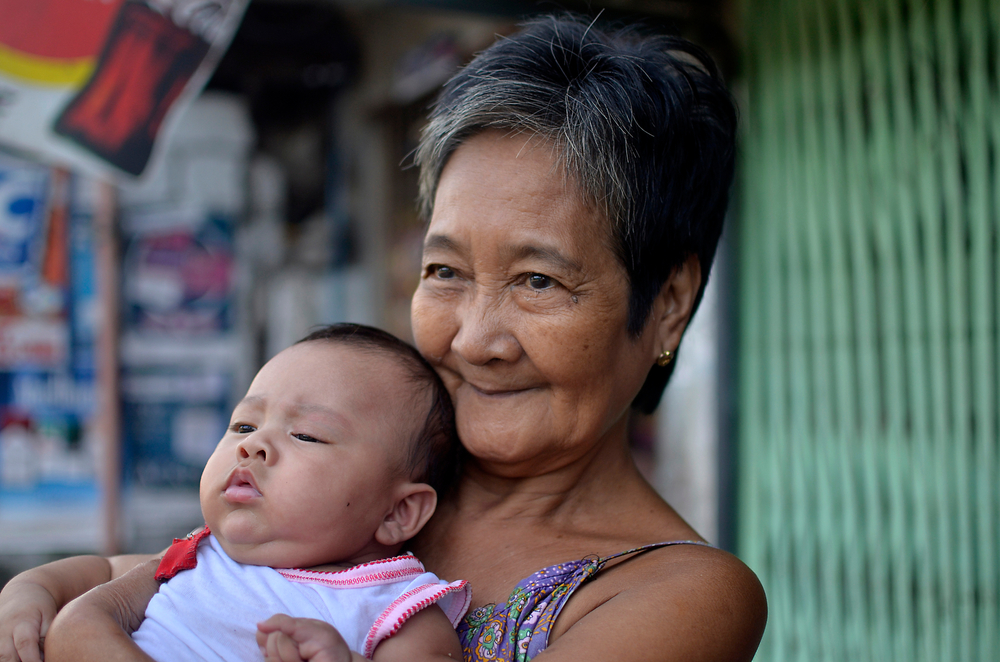Life Stages: Old Age
Caring for the Elderly
Filipinos regard old age as a highly respected phase of life. Elderly Filipinos are esteemed for their guidance and experience. They are also viewed as the most important and mature members of the family during times when advice or emotional comfort is needed. The life expectancy in the Philippines is 67 years for men and 73 years for women.
Philippine children speak very politely to their aged parents and older family members. Grandparents in the country are respected for their wisdom, maturity, and caring attitude towards their grandchildren. Although they cannot interfere in the parental rights over a child, grandparents have considerable influence in family matters. They mainly help with childcare and upbringing, especially when both parents go to work.
Aged parents in the Philippines typically live with their own children and extended family. They receive personal care and attention from all at home, and it is absolutely unheard of for parents to be sent to nursing homes or old-age centers. Surveys also indicate that although most aged people live with their own children, they continue to lead independent lives during their old age due to the government’s well-planned social security system.
Children live with their elders for a long time, often throughout their entire lives, in the Philippines. Even though Philippine children become independent and move to separate households, especially after marriage, they usually remain close to their parents’ home and stay connected on a regular basis.
Copyright © 1993—2025 World Trade Press. All rights reserved.

 Philippines
Philippines 